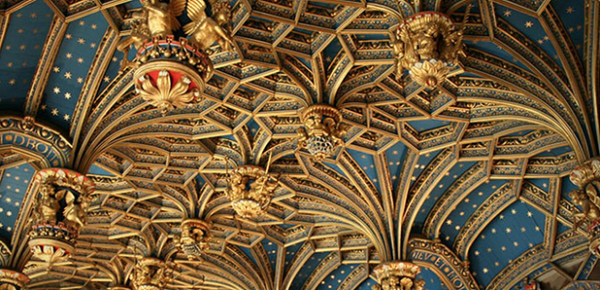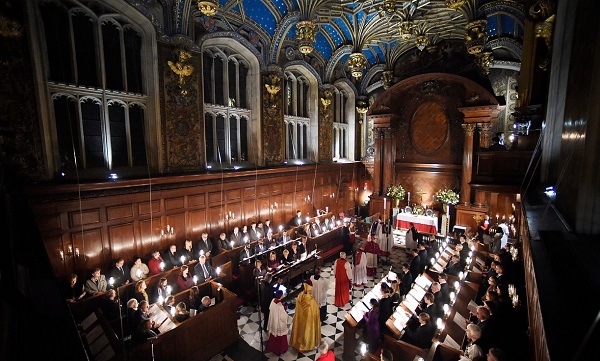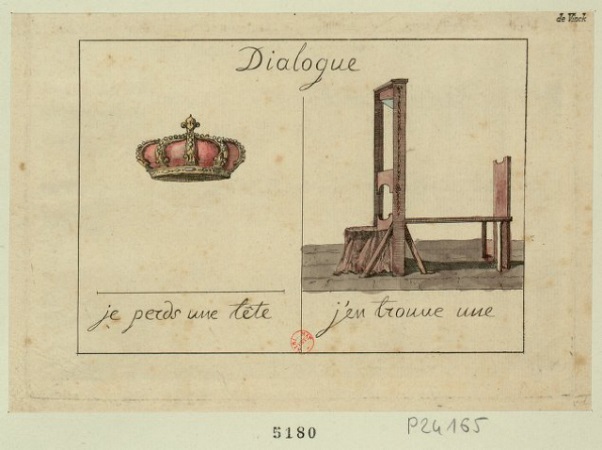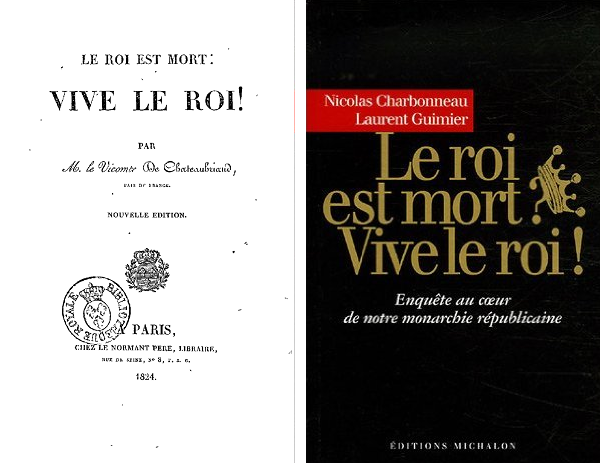The Hayden-Furnish Matter
Wednesday, July 17th, 2019[ by Charles Cameron — opening a discussion of two tweets and the place of New Testament theology in political praxis ]
.
Gen Michael Hayden:
Just coming from Sunday mass. The Gospel and homily today focused on the story of the Good Samaritan. Do you think Trump or anyone in his administration is aware that this would be happening on this particular Sunday?
— Gen Michael Hayden (@GenMhayden) July 14, 2019
Dr Timothy Furnish:
So US domestic & foreign policy should be run according to New Testament rubrics? Wouldn’t that violate separation of church & state? But OK. Are you ready to apply the same standard when the lectionary reading is I Corinthians 6:9-11 or II Thessalonians 3:10?
— The Occidental Jihadist (@Occidentaljihad) July 14, 2019
**
It seems to me that Tim Furnish‘s response to Gen Hayden opens up one of the few truly central questions of our times — maybe in fact The Key Question for holders of western culture and values.
I take it that this question is in fact a koan — strictly unanswerable, yet livable, lively.
Zen koans are the equivalent of case law. In what follows, I shall offer some precedents that may be of use as we consider the case that Tim Furnish sets before us.
**
First, I would like to offer two notions from New Testament studies which may be of help here.
The Kerygma:
Following the scholar CH Dodd, Wikipedia defines the kerygma thus:
- The Age of Fulfillment has dawned, the “latter days” foretold by the prophets.
- This has taken place through the birth, life, ministry, death and resurrection of Jesus Christ.
- By virtue of the resurrection, Jesus has been exalted at the right hand of God as Messianic head of the new Israel.
- The Holy Spirit in the church is the sign of Christ’s present power and glory.
- The Messianic Age will reach its consummation in the return of Christ.
- An appeal is made for repentance with the offer of forgiveness, the Holy Spirit, and salvation.
if that’s the Foreign, what’s the Domestic Policy?
The Acts of Corporal Mercy:
I was an hungred, and ye gave me meat: I was thirsty, and ye gave me drink: I was a stranger, and ye took me in: Naked, and ye clothed me: I was sick, and ye visited me: I was in prison, and ye came unto me. .. Verily I say unto you, Inasmuch as ye have done it unto one of the least of these my brethren, ye have done it unto me.
Gospel of Matthew 25 vv. 35-36, 40.
**
Michael Lotus gave me an exemplary comment with permission to quote it the other day:
As to binaries, lawyers, judges and legislators do not get to spend unlimited time dealing with the ultimately unique nature of each person, each event, each controversy. They have to determine when government power will be applied to compel behavior, to extract money, to seize and bind and carry away persons against their will, to imprison, to put to to death. They have over millennia determined that clear, simple rules are the best way to use this blunt and often brutal, but essential, instrument. Then they have to apply rules to actual cases. Clarity, certainty, and the ability to plan accurately based on known rules, is critical. And inevitably there will be, or seem to be, unfairness in the application, and hard cases, and heart-breaking cases. Attempts to deal with many nuances lead to a thicket of confused rules, lack of guidance for action, and even more arbitrary application of the same unavoidable application of government power. Large and complex human groups cannot be governed otherwise than by general rules of general application. Some balance between hard-and-fast rules tempered by some degree of judicial discretion is where most reasonably fair systems end up, and that is what we have. But the basic fact of binary division is inevatable in the law. Do we hang this man or not? Is this or is this not the type of property subject to this set of rules? Is this man entitled to a deduction on his tax or not? Etc., etc. The law is at best a very crude approximation of the ideal of justice which we can imagine even in human terms if we lived in a a less defective world than the real one. And of course our poor, merely human law, even at its best. falls bitterly, laughably short of that perfect justice that God alone can comprehend and impose. It is one of the many tragedies of the human condition, deriving ultimately from original sin.
Much food for thought there..
**
I’m a Brit, and a guest here in these United States. Here, accordingly, are some materials of British origin:
Think of the British coronation service, a Eucharist with anointing, and these words proffered to the King or Queen by the presiding Archbishop:
Receive the Rod of equity and mercy.
Be so merciful
that you be not too remiss,
so execute justice
that you forget not mercy.
Punish the wicked,
protect and cherish the just,
and lead your people
in the way wherein they should go.
**
Sir Thomas More, in Robert Bolt‘s play, A Man for All Seasons:
Oh? And when the last law was down, and the Devil turned round on you–where would you hide, Roper, the laws all being flat? This country’s planted thick with laws from coast to coast–man’s laws, not God’s–and if you cut them down–and you’re just the man to do it–d’you really think you could stand upright in the winds that would blow then? Yes. I’d give the Devil benefit of law, for my own safety’s sake.
According to a Harvard Crimson article:
Sir Howard Beale, the Australian ambassador to this country, took the late Mr. Justice Frankfurter to see Bolt’s play in New York in 1962. Beale recounts that the Justice could scarcely contain his excitement during the scene just set out, and as it ended Frankfurter whispered in the dark. “That’s the point, that’s it, that’s it!”
**
I saw a reference to More, who was Lord High Chancellor under Henry VIII, as Keeper of the King’s Conscience, which drove me to this definition:
Keeper of the King’s Conscience”
The early chancellors were priests, and out of their supposed moral control of the King’s mind grew the idea of an equity court in contradistinction to the law courts. A bill in chancery is a petition through the Lord Chancellor to the King’s conscience for remedy in matters for which the King’s common law courts afford no redress. The Keeper of the King’s Conscience is therefore now the officer who presides in the Court of Chancery; see Chancellor and Lord Keeper.
**
Barnett Rubin, today, for another up-to-the-moment view:
Politics is not a mechanism for transforming goals into reality, for the Taliban or anyone else. It is a process of conflict and cooperation dependent on resources, relationships, and chance in which no one controls the outcome.
**
St Francis would, I think, like to see the Beatitudes, and proceeding from them the corporal works of mercy, deployed in all functions of the individual and community / state; the Jesuits would, by and large and in contrast, it seems to me, appreciate pragmatism — tempered by mercy, yes, as and when pragmatism permits.
Think on these things..
Your thoughts?








